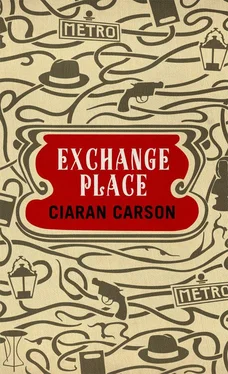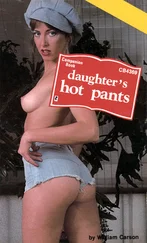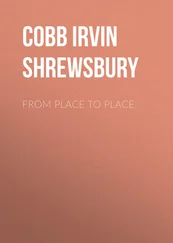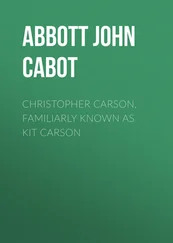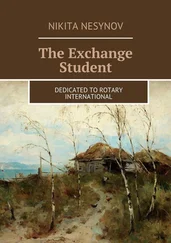He stopped at a stamp shop called La Postale, one of several in the arcade, traditionally a philatelists’ haven. French stamps, naturally. As a boy Kilpatrick had collected stamps, specializing in those of Ireland and the British Empire, and only gradually realizing that France had had an empire nearly as extensive as that of Britain. His eye was caught by two stamps on a display card headed 1948, one commemorating Louis Braille, the other Louis Auguste Blanqui, bearing portraits of their subjects. Kilpatrick knew Blanqui from his reading of Walter Benjamin, Blanqui the revolutionary who during one of his many terms of imprisonment had written L’Eternité par les astres , in which he propounded a universe of infinite worlds and endlessly repeated variations, endlessly doubled lives. Kilpatrick had toyed with the idea that Blanqui could be translated as Blank Who. As for Braille, when he thought of Braille he thought of Louis Braille as a boy stumbling in his father’s saddler’s shop, clutching the stitching-awl that an instant later would blind him, and of Braille punching out the raised dots of his writing system with the selfsame awl. Braille sounded like an awl. Une braille .
At that instant he remembered the blind man he would often see crossing his path in Belfast, waving his long white wand from side to side like the antenna of a mine-detector, the cane ticking against street furniture: lamp-posts, bollards, parking signs. Echo-location. Kilpatrick saw himself sitting outside a Belfast café, the blind man inclining his head towards him as he lit a cigarette; he supposed the blind man had heard the rasp of the flint lighter. Kilpatrick had not thought of Belfast since he had come to Paris — what was it, ten days, a fortnight ago? A month? It seemed like another world, the person he had been in Belfast someone else. Kilpatrick saw himself in his mind’s eye as the man in the navy linen suit, the man in the Harris tweed jacket, the man in tan Oxfords or oxblood brogues, the man in the herringbone Crombie coat, the man in the camel coat, the man wearing this hat or that, as if all these men were other men; and he saw the blind man infallibly wearing the same outfit, a grey army-surplus anorak, jeans and white trainers, hatless, always the same man, reliably threading his way through the city with a sure step, as if he knew where he was going better than Kilpatrick knew himself.
Kilpatrick continued on slowly down Passage des Panoramas, blind to Passage des Panoramas. In his mind’s eye he was in North Street Arcade in Belfast. Light poured in from the glass roof. He felt transparent, weightless. He would stop at a record store, a vintage clothing store, an art shop, a café. He would stop for a coffee before emerging into Lower Donegall Street and turning right, crossing the street and walking for some fifty yards before turning left into the archway that led to Exchange Place, where John Bourne had his studio. From the ticket pocket of his Donegal tweed jacket he would take out the old-style latchkey given to him by Bourne, unlock the heavy wooden entrance door and take the three flights of worn wooden stairs to the loft at the top of the building. As he entered Bourne’s room Bourne would nod without turning round and say, Kilpatrick, I know your step. Bourne, Kilpatrick would reply. Bourne would be standing at the easel, a cigarette in one hand and a brush in the other, looking at what he had just painted. The floor of the studio was covered with what looked like debris, the contents of a skip, though Kilpatrick knew that for Bourne it constituted a resource: books, pages torn from books, Xeroxes of images, wrapping paper, swatches of linen and cotton samples, coils of old film stock. It was all grist to Bourne’s mill. Kilpatrick would pick his way through the litter. He would stop and stand and look over Bourne’s shoulder. What do you think? Bourne would say, and before Kilpatrick could reply, Bourne would step over to the butcher’s block he used as a table, lift a boning knife and with two swift movements slash an X into the canvas. I don’t like it, Bourne would say. It’s not me.
I am a displaced person. I inhabit the interlude between two movements, not knowing for how long. I am in limbo, the borderland between two states of being. After I left Beringer, I had made my way homewards, to find I had no home to go home to. A police cordon surrounded Elsinore Gardens. A police officer asked for my identity. I told him I was John Kilfeather. He informed me that ‘a situation’ had arisen at the Antrim Road shops — Video City, the Northern Bank, The Works Sandwich Bar, Zips and Rips Alterations and Dry Cleaning. I would be allowed back to my house for a matter of minutes, but was advised to take some belongings and to seek alternative accommodation for the night. How long might the situation continue? There was no way of knowing. Nor was I allowed to take my car.
The officer held up the length of white security tape. I stooped under and made my way to No. 41. I opened the door with my Yale key, feeling like an intruder. Already the house seemed to emanate an empty aura, the hallway almost alien in its familiarity. I packed a large briefcase with three shirts of various shades of blue, underclothing, toiletries, and a Muji A5 notebook. I also packed the typescript of X + Y = K . I could use this unplanned hiatus in my life to read it again and see what I had in mind all those years ago. I was almost out the door when it occurred to me to take my passport. I was abroad in my home city. On the bus into the city centre I took out the A5 Muji notebook. I opened the notebook at random. I found some pages devoted to Walter Benjamin, some of which I summarize here:
Walter Bendix Schönflies Benjamin was born in Berlin on 15 July 1892 to a well-off family of assimilated Jews. He was forced to flee Germany in 1933 and subsequently spent much of his time in Paris. In 1938 the Vichy government interned him for three months in the town of Nevers. He returned to Paris but fled Paris the day before the Germans entered Paris on 14 June 1940. He spent some time in the town of Lourdes before travelling to Marseilles, where he hoped to gain passage to the US. This proved impossible. In August 1940 he obtained an American visa to travel to the US from neutral Portugal. He would have to go through Fascist Spain, which could only be done via a clandestine route across the Pyrenees to the Catalan town of Portbou. He undertook the journey on 25 September at dawn. The path through the mountains was arduous. Benjamin, who had a heart condition, calculated he would have to stop every ten minutes and rest for one. He timed these periods meticulously with his gold watch. When he reached Portbou, exhausted, he found much of it still in ruins after Franco’s bombing during the Civil War. On presenting himself to the police at the railway station, Benjamin was refused entry to Spain. He would be handed over to the French authorities the next day, and subsequently surrendered to the Nazi authorities. Confined to the Hostal França in Portbou, he took an overdose of morphine. On the morning of 26 September his dead body was found on his bed in Room 3 of the Hostal França. He was forty-eight. His effects were described in official documents as ‘a leather briefcase, a gold watch, a pipe with an amber mouthpiece, a passport issued in Marseilles by the American Foreign Service, six passport photographs, an X-ray, a pair of spectacles, various magazines, a number of letters, and some papers, contents unknown.’ Benjamin was rumoured to have been carrying another briefcase containing an important manuscript — the final version, according to some sources, of The Arcades Project . This briefcase was never found.
Upon reaching the city centre, I booked into the Adelphi Hotel in Ireland’s Entry. A lifelong resident of Belfast, I had never stayed in the Adelphi, but had often drunk in its art deco bar, which was unchanged, it seemed, from the 1930s. I was assigned Room 7, which lay at the top of a narrow staircase. The furnishings, under the dim light of the dormer window, had the air of an even earlier period — a mahogany three-mirror dressing table, a mismatching mahogany wardrobe, a high oak bedstead, a bedside table with a night light, and a washstand with mirror. I went down to the bar. It was empty save for the barman and myself. I ordered a glass of John Powers and looked at surroundings: still unchanged. There was the alcove with three art deco mirrors on the wall, each flanked by wall lamps with bakelite stems, chrome back plates and frosted glass flame shades; there was the matching, facing alcove with matching lamps and mirrors.
Читать дальше
